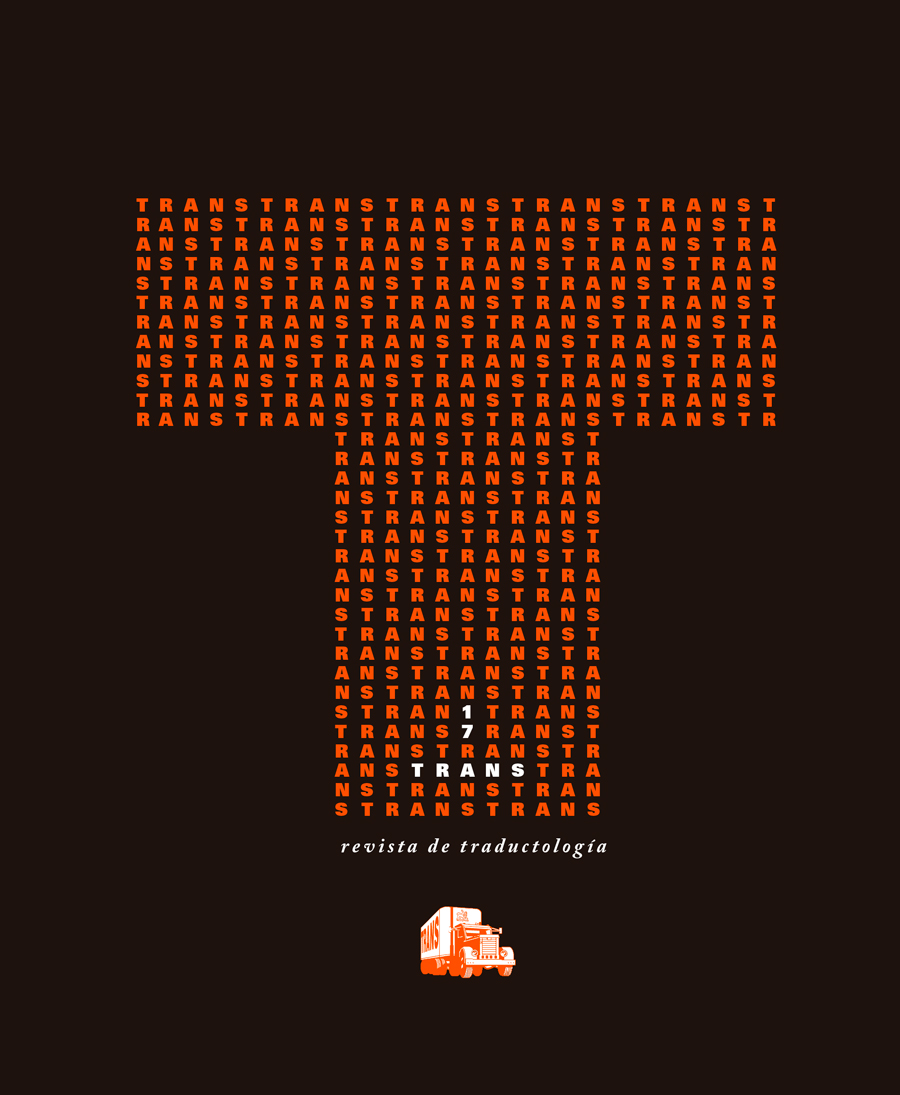Non-standard varieties in American sitcoms and their Spanish dubbing: a descriptive study
DOI:
https://doi.org/10.24310/TRANS.2013.v0i17.3229Keywords:
situation comedy, prefabricated orality, language variation, translation strategies and tendenciesAbstract
When it comes to the creation of humorous sequences or to character building within an audiovisual fiction text, dialects and accents turn out to be one of the most valuable resources for scriptwriters. Bound as they are to a specific society and culture, these varieties instantly rouse the researcher’s curiosity as to how they could be dealt with by translators. This article sets out to shed some light on the issue by summarising the findings of a descriptive study carried out on the use of language variation in two American sitcoms, Friends and Will & Grace, both in their original and their Spanish dubbed version. In keeping with the goals outlined at the outset of this research, two sets of conclusions have been reached: one on linguistic varieties in the source text, their frequency, function and underlying stereotypes; and another on dubbing strategies through which dialect-marked fragments are translated, with a view to identifying a series of translation tendencies vis-à-vis language variation in audiovisual fiction textsDownloads
Metrics
Publication Facts
Reviewer profiles N/A
Author statements
Indexed in
-
—
- Academic society
- N/A
- Publisher
- Universidad de Málaga
Downloads
Published
How to Cite
Issue
Section
License
All contents published in TRANS. Revista de Traductología are protected under the Creative Commons Attribution-NonCommercial-ShareAlike 4.0 International (CC BY-NC-SA 4.0) license. All about this license is available in the following link: <http://creativecommons.org/licenses/by-nc-sa/4.0>
Users can copy, use, redistribute, share and exhibit publicly as long as:
- The original source and authorship of the material are cited (Journal, Publisher and URL of the work).
- It is not used for comercial purposes.
- The existence of the license and its especifications are mentioned.
- ShareAlike — If you remix, transform, or build upon the material, you must distribute your contributions under the same license as the original.
There are two sets of authors’ rights: moral and property rights. Moral rights are perpetual prerogatives, unrenounceable, not-transferable, unalienable, imprescriptible and inembargable. According to authors’ rights legislation, TRANS. Revista de Traductología recognizes and respects authors moral rights, as well as the ownership of property rights, which will be transferred to University of Malaga in open access.
The property rights are referred to the benefits that are gained by the use or the dissemination of works. TRANS. Revista de Traductología is published in an open access form and it is exclusively licenced by any means for doing or authorising distribution, dissemination, reproduction, , adaptation, translation or arrangement of works.
Authors are responsable for obtaining the necessary permission to use copyrighted images.













21.png)
